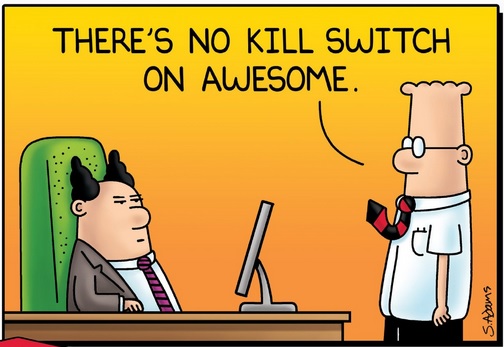It’s graduation season and soon many new HR brothers and sisters will be entering into their first real HR gigs. Many will be titled, “HR Manager”, even without one day of experience. That’s because in many organizations, HR Manager is the only HR position they have, and they’ll gladly take a young, fresh new HR grad.
The tendency for new managers, especially HR Managers thrust into a generalist role, is to get buried with tasks. We all know the drill, you get started at the new company, and by day 3 you already have so many projects, improvements, process changes, etc. that need to be made you determine you probably have about 18 months worth of work.
Whether you’re a new manager, or seasoned HR Pro, we tend to forget the above concepts from time-to-time and get bogged down in the everyday details within HR Departments. So, for the new HR Managers (and maybe some seasoned vets) I wanted to give you 3 tasks that should be accomplished everyday as a HR Manager who wants to be strategic and add value to your organization:
1. Keep Track of the Score,
2. Find Better Talent,
3. Be a Relationship Bridge.
Keeping track of the score, means you must create and track metrics, for your people practices, that have bottom-line impact to your organization. Communicate these constantly and educate your organization on how they can impact these results.
Finding better talent for your organization is really the only reason the HR Department exists. If you did only this all day, every day, your company would be better for it. No, having a better dress code policy isn’t going to make you world class. In the end, talent wins.
The single largest factor to inefficiency isn’t bad processes, it’s bad, or non-existent, relationships. It is your job to develop your leaders, and part of that is helping them understand the value of each part of the organization and getting them to dance with each other. Being a bridge, and bringing leaders together, with understanding will have the greatest impact on efficiency.
Leaders understanding, and actually knowing, each others pain will solve most organizational problems. Why? Because you hire great talent, and great talent with good relationships will move mountains and get you to world class.
Never underestimate the power of relationships (good and bad).
Show me a leader who claims they can “work around” someone (meaning they don’t get along with that person), and I’ll show you a below average leader who needs to leave your organization. New, and seasoned, HR Managers underestimate the leverage they have at helping organizational efficiency through better relationships.
Good Luck new HR Managers!

